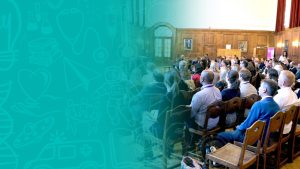Congenital Hyperinsulinism Conference – June 2025
This course requires registration prior to purchase, for more information and to purchase this course, please click here.
Overview
This meeting provides a vital platform to enhance understanding and clinical awareness of hyperinsulinism—a rare but significant condition affecting infants, children, and young people. Through expert-led presentations and personal narratives, participants will gain insight into the journey from diagnosis to treatment, deepening their knowledge of the disorder’s impact.
The programme aims to empower healthcare professionals with the skills to identify and manage hyperinsulinism early, particularly at the bedside. This proactive approach is crucial in preventing potential complications, such as brain injury, associated with delayed or misdiagnosis.
By combining expert perspectives with patient and family experiences, the event underscores the importance of holistic care in addressing this challenging condition.
Learning objectives:
- A key objective is to empower attendees with the knowledge and practical skills needed to recognise this condition early and initiate prompt, effective treatment, thereby mitigating the risk of hypoglycaemic brain injury.
- The meeting will emphasise the critical understanding that patients with hyperinsulinism lack the ability to produce alternative fuels, placing them at significant risk of brain injury during hypoglycaemia.
- Additionally, the programme will stress the importance of bedside practitioners viewing blood glucose levels as a vital sign. It will advocate for immediate glucose measurement whenever there are concerns, ensuring timely intervention and improved patient outcomes.
Who should attend?
Nurses and students (Paediatric and Neonatal), Midwives, Paediatricians, Neonatologists, Allied Health Care Professionals.
Dates and Times
This course requires registration prior to purchase, for more information and to purchase this course, please click here.




